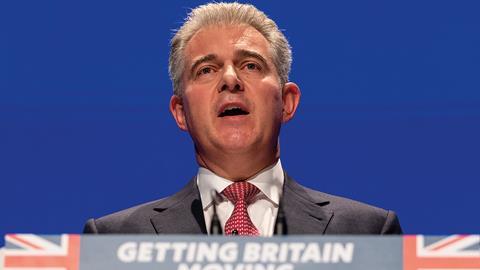Justice and the rule of law didn’t get much of look-in at this year’s fraught Conservative party conference. But a hardy few still endeavoured to change the conversation
Distraction was the buzzword for this week’s Conservative party conference. Prime minister Liz Truss and her chancellor Kwasi Kwarteng explained they had U-turned on the 45p rate of tax because it was becoming a distraction. Most of the members trudging disconsolately around Birmingham looked like they could do with any distraction from their party’s current troubles.
Justice matters were unlikely to help. Just two fringe events were arranged to discuss justice issues – in the absence, even, of the usual main sessions on human rights legislation to get the members fired up.
The contrast with the Labour conference is always stark: Labour’s programme is littered with worthy (some would say virtue-signalling) discussions on access to justice and legal aid. Usually with few actual promises of any more funding.
In contrast, the Conservatives’ conference largely ignored the subject.
If ministers had attended the fringe sessions, they would have heard pleas from representative groups to back the legal sector, not just because of lofty ideals about access to justice, but because doing otherwise would harm the economy.
Rohini Teather, head of parliamentary affairs for the Legal Aid Practitioners Group, put the case for funding lawyers in purely financial terms: cuts have forced firms out of business and added to the rash of empty high street sites in towns and cities across the country. The problem, she pointed out, was particularly acute where firms had been located close to court buildings that have been shut down in recent years. Often these firms were among the highest payers in towns where social deprivation was high: forcing them out of business was hardly a good look for a government still notionally committed to a levelling up agenda.
‘We’re trying to change the conversation about legal aid lawyers to be more about them as employers, small businesses and a key part of our towns,’ said Teather. ‘This is so often overlooked but we want to push more than just the moral arguments.’
I. Stephanie Boyce, president of the Law Society, used her platform at a conference fringe event to plead for ministers to prioritise legal services, what she called one of the nation’s ‘greatest assets’.
‘The government can do this by seeking provisions in trade deals to allow English and Welsh lawyers to advise on home-country laws to the same extent that they are entitled to practise in their home jurisdiction,’ said Boyce.
‘This should be facilitated by mobility arrangements that allow legal professionals to enter and work easily across jurisdictions, and provide vital advice to individuals and corporations on a fly-in, fly-out basis.’
'We’re trying to change the conversation about legal aid lawyers to be more about them as employers, small businesses and a key part of our towns'
Rohini Teather, Legal Aid Practitioners Group
If the legal sector needs a champion, new lord chancellor Brandon Lewis made a decent pitch for the role. His speech was filled with praise for the work of lawyers – not a message necessarily designed to win over the party delegates.
‘English law is recognised across the globe and I will work to promote our exceptional legal services industry to the world,’ he said. ‘The critical impact of the whole system to our country cannot be overstated. It underpins all that we do, all that we achieve, all that we believe in. It impacts everyone, everywhere. I take the responsibility of safeguarding and assisting that very seriously.’
Lewis could hardly ignore the barristers’ strike after so much coverage in recent weeks, and he struck a more conciliatory note than many expected.
‘Strike action has had a devastating impact on victims and justice has been delayed in too many cases. We have to end the revolving door of industrial action, ending that cycle of brinkmanship. We have to ensure – all of us – that we are putting the criminal justice system on a more sustainable footing for the long term.’
Lewis’s speech was hardly barnstorming, but he made a decent fist of talking up the profession when there was little political capital to be gained from it. His celebratory approach to the legal sector was in contrast to that of home secretary Suella Braverman, who drew howls of laughter and sustained applause with a now-customary attack on lawyers representing asylum seekers.
Braverman described immigration laws being ‘abused by multiple meritless and last-minute claims, and abused by the tactics from specialist small boat-chasing law firms’. Outlining (admittedly rather vague) plans to override European judges blocking the Rwanda asylum policy, she listed the groups who would oppose her, ending with ‘and the lawyers – don’t get me started on the lawyers’. It felt as if the justice secretary’s olive branch had been snapped in two.





































2 Readers' comments